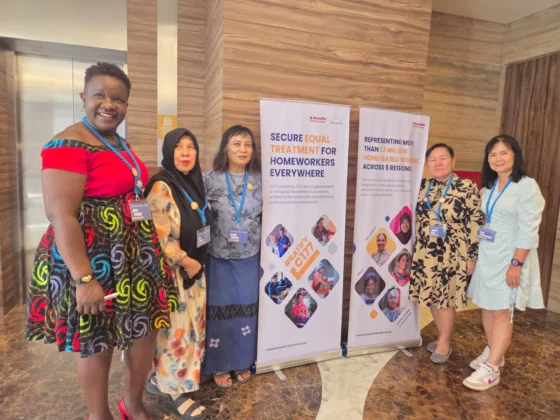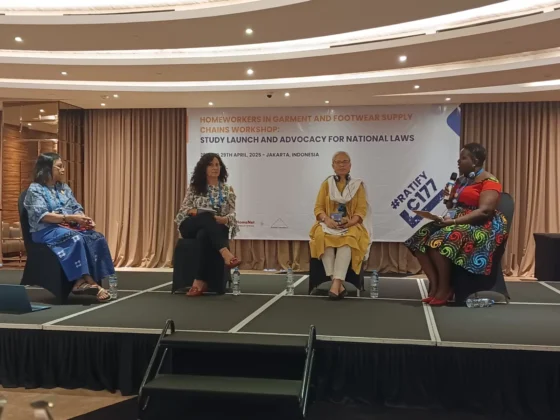25th – 29th April 2025
Jakarta, Indonesia
The workshop was structured into two main segments:
Part 1: Launch of Study Findings on the Status of Homeworkers in Garment and Footwear Supply Chains
This segment focused on presenting and discussing the outcomes of a comprehensive study on homeworkers in the garment and footwear sectors. The objectives of this session were to:
- Provide an overview of the study and its methodology
- Highlight key findings from national surveys
- Explore the structure and functioning of garment and footwear supply chains
Part 2: Workshop on Making Laws Work for Homeworkers — Labour Law and Effective Enforcement Mechanisms
The second session aimed to deepen participants’ understanding of labour law and explore practical pathways to strengthen legal protections for homeworkers. The objectives included:
-
- Understanding Labour Law
- Tracing the origins and evolution of labour law
- Examining how labour law protects workers in practice
- Defining advocacy goals to ensure homeworkers are recognized and protected under labour legislation
- Learning from International Experiences
- Reviewing the pros and cons of various legislative models adopted in different countries
- Identifying strategies for designing robust and enforceable legal frameworks
- Collaborative Advocacy Planning
- Working with trade unions and partner organizations to identify core components for effective legal advocacy for homeworkers
- Understanding Labour Law

























Leave a Reply